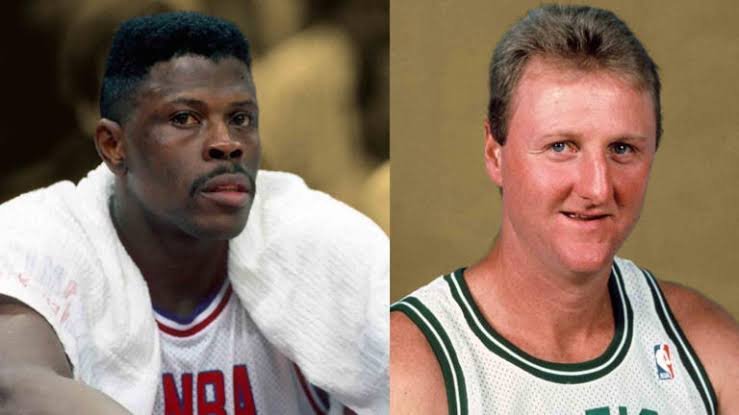
Patrick Ewing Reflects on Larry Bird’s Impact During His NBA Rookie Season
When Patrick Ewing, the towering center from Georgetown University, entered the NBA in 1985, he was prepared to face the physical and mental challenges that awaited him. However, one of the biggest surprises of his rookie season was encountering Larry Bird, the Boston Celtics’ forward who defied conventional athletic expectations.
Ewing, a dominant force in college basketball, quickly realized that the professional level was a different arena altogether. Despite his own accolades and the promise of a bright future, Ewing found himself frequently in awe of Bird’s unique skill set and basketball intelligence. “Whatever you were saying for a man who can’t jump, he’s demolishing everybody,” Ewing recently remarked, underscoring Bird’s remarkable ability to outperform opponents despite lacking the physical attributes typically associated with basketball greatness.
Bird, known for his sharp shooting, court vision, and tenacity, had already established himself as a formidable competitor by the time Ewing entered the league. His unassuming appearance and perceived lack of athleticism often led rivals to underestimate him—until they faced him on the court. Bird’s mastery in exploiting defensive weaknesses, coupled with his unshakeable confidence, made him one of the most challenging players to guard.
Ewing recalls his early encounters with Bird as eye-opening experiences that contributed significantly to his development as a player. “I thought I had seen it all in college,” Ewing said, “but Larry showed me that the NBA was a different beast. He didn’t rely on speed or jumping ability, but he was always one step ahead. His basketball IQ was off the charts.”
Bird’s ability to read the game and anticipate plays was something that left a lasting impression on Ewing. “He would get to his spots before you even knew where the ball was going,” Ewing reflected. “He made the game look easy, and that’s what made it so hard to play against him.”
Despite being on opposing teams, Ewing found himself learning from Bird. The Celtics star’s work ethic, competitiveness, and unyielding desire to win set a standard that Ewing aspired to emulate. Bird’s influence extended beyond his on-court performance; his mental toughness and resilience in high-pressure situations were qualities that Ewing admired and sought to incorporate into his own game.
Ewing’s respect for Bird grew with each encounter, and it became clear that Bird’s greatness lay not in his physical abilities but in his meticulous approach to the game. “Larry was a student of the game,” Ewing said. “He knew every player’s tendencies, every team’s strategies. He played chess while the rest of us were playing checkers.”
As Ewing’s career progressed, he often looked back at those early lessons from Bird as pivotal moments in his NBA journey. The respect was mutual; Bird himself acknowledged Ewing’s prowess and potential, recognizing the young center as one of the future stars of the league.
In retrospect, Ewing’s experiences with Bird highlight an important aspect of professional sports: the value of intellect, preparation, and heart over sheer physical prowess. Larry Bird’s legacy, as seen through Ewing’s eyes, serves as a testament to the enduring impact of a player who defied expectations and consistently demonstrated that basketball is as much a mental game as it is a physical one.


